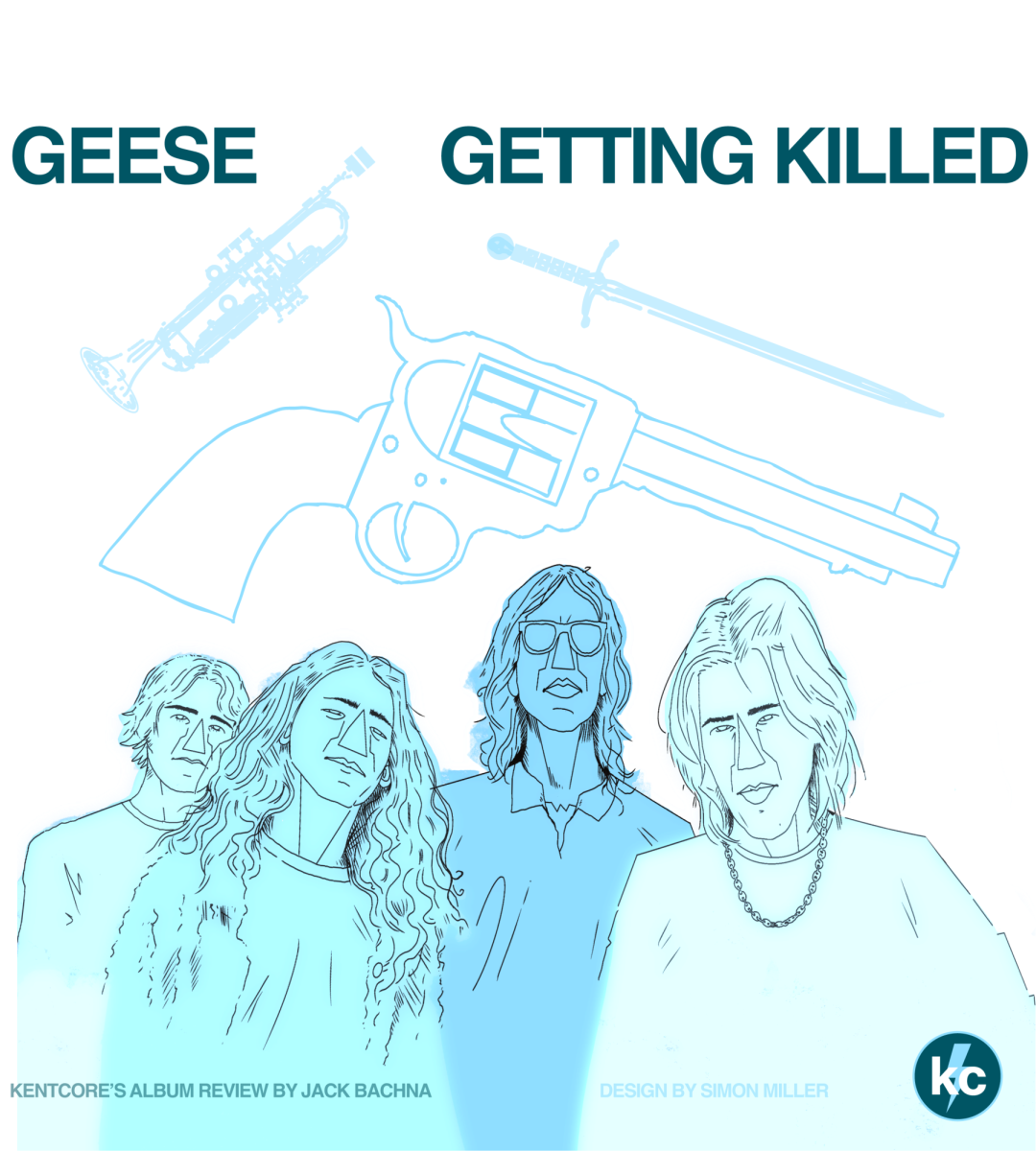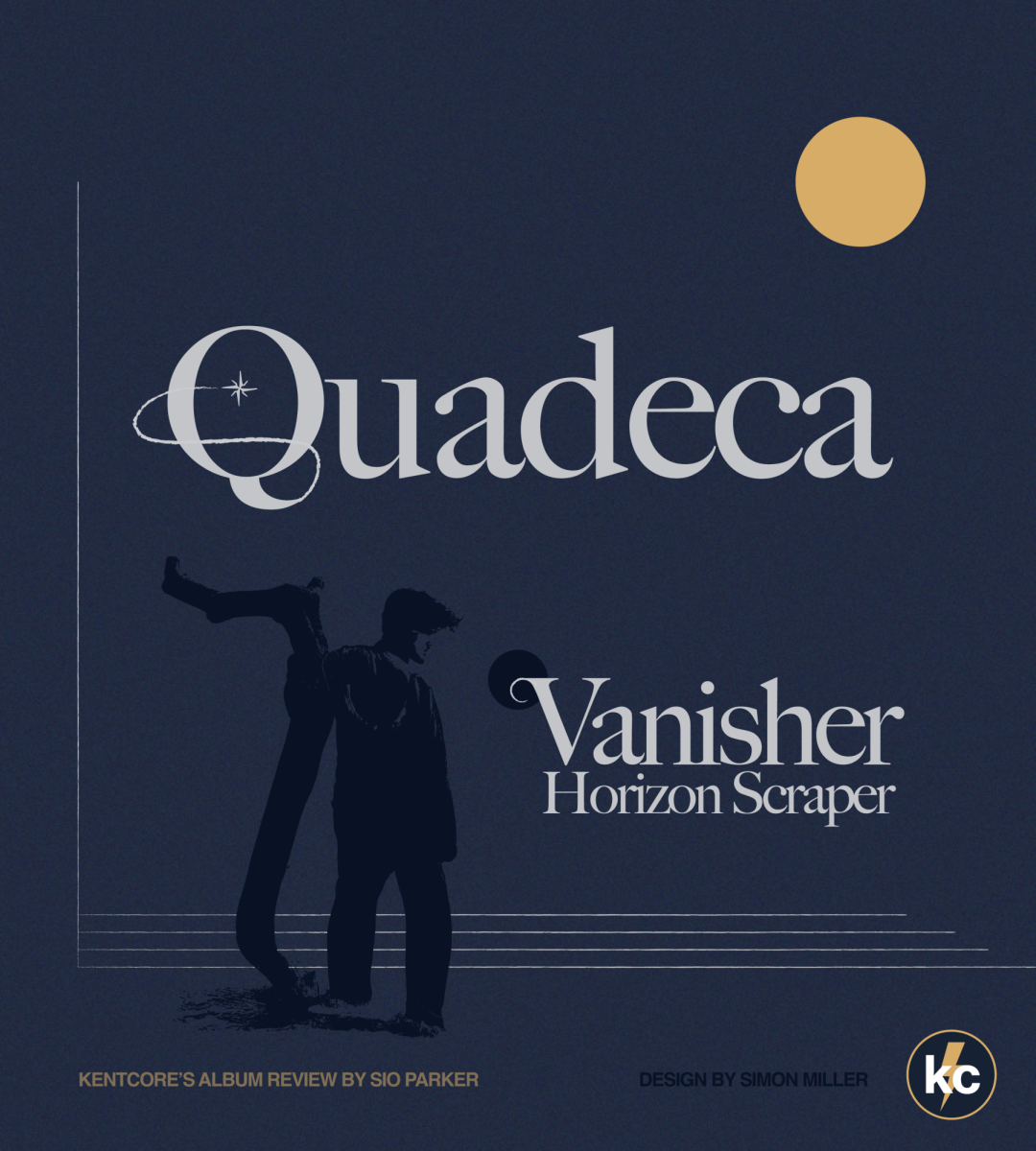If you have a love for weird music bordering on the obsessive and a deep yearning for a fresh, exciting rock band in the age of streaming and AI, then chances are you’ve come across Geese.
Formed in New York City in 2016, the band has been making waves in the underground for a while now, mainly with the release of their critically acclaimed third studio effort, 3D Country, in 2023. The record was super ambitious in its mission to tastefully blend the sounds of classic blues rock, boisterous hard rock, and gritty post-punk. And while the album certainly wore its influences as a badge of honor, I thought Geese revived these vintage sounds in a way that was colorful, off-the-wall, and unique to them. Listeners like myself were especially thrilled by the band’s raw energy, instrumental talent, and the uniquely captivating baritone vocals of frontman Cameron Winter.
Winter actually released his debut solo album, Heavy Metal, in December of last year, which saw him going in a singer-songwriter direction, to further praise from critics and fans alike. The much more stripped-back instrumentation and meditative tone that Winter chose for the project was a significant deviation from the fiery performances that his band had become known for, allowing his passionate and soulful, albeit unconventional, voice to really shine through and establishing him as an oddball talent in his own right.
So with the establishment of a recognizable sound, a strong cult following, and credibility among the music snobs, Geese announced they were gearing up for a new album cycle in 2025 to much anticipation. I, for one, was eager to hear how the band would follow up the success of 3D Country. Would they play to their strengths on the new album or would they go in a completely new direction? Would they fail to live up to the hype that they created for themselves or would they drop one of the best rock albums in recent years?
Well, on Getting Killed, Geese seemingly made the wise decision not to worry too much about other people’s expectations for them and to just see where their creativity takes them. The result is an album that sees the band’s sound growing even more unhinged and erratic.
This is most definitely the case on the hallucinatory jam that is the opening track, “Trinidad,” with its offbeat rhythm and noisy horn passages that serve as the release of built-up tension and paranoia. The utterly freakish lyrics also add to the manic atmosphere of the song, including a chorus of screams that there’s a bomb in the narrator’s car and Winter rambling on the second half of the song about how his daughters are dead and his wife is in the shed. By comparison, the next track, “Cobra,” is a warm, bluesy ballad that sounds much more like something off of their last album. The band’s softer instrumentation and Winter’s crooning vocal melody provides a much-needed rest after the chaotic intro.
The title track has to be mentioned as one of my favorites from the album. It’s another groovy blues number that just flows so smoothly, with Winter wailing towards the end of the song, “I’m getting killed by a pretty good life”; this line certainly evokes a sense of existential angst for a narrator grappling with the harsh realities of the modern world. From here, we get “Islands of Men,” a funky, nearly six-minute rock anthem that almost feels like the tipping point of the album, with Winter desperately crying out, “you can’t keep running away from what is real.” I think these lyrics provide some much-needed catharsis, not only for the narrator, but for ourselves in a world where so many of us have a tendency to self-isolate and avoid facing reality. Instrumentally speaking, the song, with its entrancing drum beat and blaring trombone, feels like the inevitable culmination of Geese’s entire sonic palette.
We’re then met with the hypnotic and rowdy “100 Horses,” featuring some gritty guitar work that actually almost sounds to me like something off of a Velvet Underground record as the narrator bizarrely declares “all people/in times of war/must go now to the circus.” To me, this line seems to describe how some people, especially those in positions of power, treat the violent disarray that takes place within modern society as a form of entertainment while others are so detached from reality that they simply could care less. In any case, the song sounds like something out of the drug-induced nightmares of an old hippie backpacking across the Mojave Desert.
“Au Pays du Cocaine” is another highlight off the record. This is a passionate, tender ballad that sounds as though it could have landed on Winter’s solo record and is probably the most intimate moment on the entire album, ending in an enchanting whirlwind of keys and percussion. Alternatively, “Bow Down” is another wild rocker accompanied by surreal lyricism that might cause one to question Winter’s sanity with lines like “I was kneeling on the turnpike / With an angel down my throat.” Once again, Geese’s frontman holds this strange yet swaggering persona where he balances raw emotion with the drivel of a madman.
It is at this point that we reach “Taxes,” which was the album’s lead single, and a song that is hard not to appreciate. Winter insistently sings on the track “If you want me to pay my taxes / You’d better come over with a crucifix / You’re gonna have to nail me down.” I think Winter uses taxes as a metaphor here to mean pretty much anything modern society demands of us that we feel is a burden physically or emotionally. The narrator basically rejects the command, saying he’d rather be crucified than pay off his debt. Instead, the narrator asserts “I will break my own heart from now on,” meaning he has recognized that if he wants to truly lift the burden, then he has to look inward and heal himself. This bold proclamation, along with the band’s lively drums, upbeat guitar crescendos, and soaring vocal harmonies, sell this one for me as yet another stunning track.
Finally, Geese close the album with “Long Island City Here I Come,” a theatrical frenzy clocking in at over six minutes. On this grandiose track, the sharp guitars, bright keys, thumping percussion, and punchy bassline unite to form a disorderly jam session that only gets more manic as the song progresses. Lyrically, the song does a great job of connecting some of the album’s overarching themes. Scattered throughout the record, we catch glimpses of a rebellious narrator, determined to break free from a system he feels trapped in. He is disillusioned with modern life, yet he desires to make something of value in the face of his mortality. He also seems to worry about the kind of life he wants to lead and how he will be judged when he dies. One way to look at this is that the narrator could be Winter himself, obsessing over how he hopes to be defined and remembered as an artist. The lines “A masterpiece belongs to the dead / There are microphones under your bed / And there’s footage that will prove us both wrong,” could be reassurance to Winter that his ambition and ethic as a musician will pay off in the end. Likewise, Winter’s final testimony of “I have no idea where I’m going / Here I come” suggests that Winter accepts, or at least recognizes, the fact that he cannot know where his artistic journey will take him in the end, however, he holds the ability to forge his own path forward, free to choose his own fate and legacy. A fitting conclusion to a wild, eccentric ride that challenges the boundaries of rock music.
Geese’s Getting Killed feels like the band took note of everything that worked on their last record and elevated their sound with a level of authenticity that is rarely displayed anymore. From the band’s skilled musicianship to frontman Cameron Winter’s one-of-a-kind voice and clever songwriting, Getting Killed exudes confidence and never fully loses control in spite of its chaos. This is a must-listen unlike any other release you’ll hear in 2025.
RATING: 9/10








